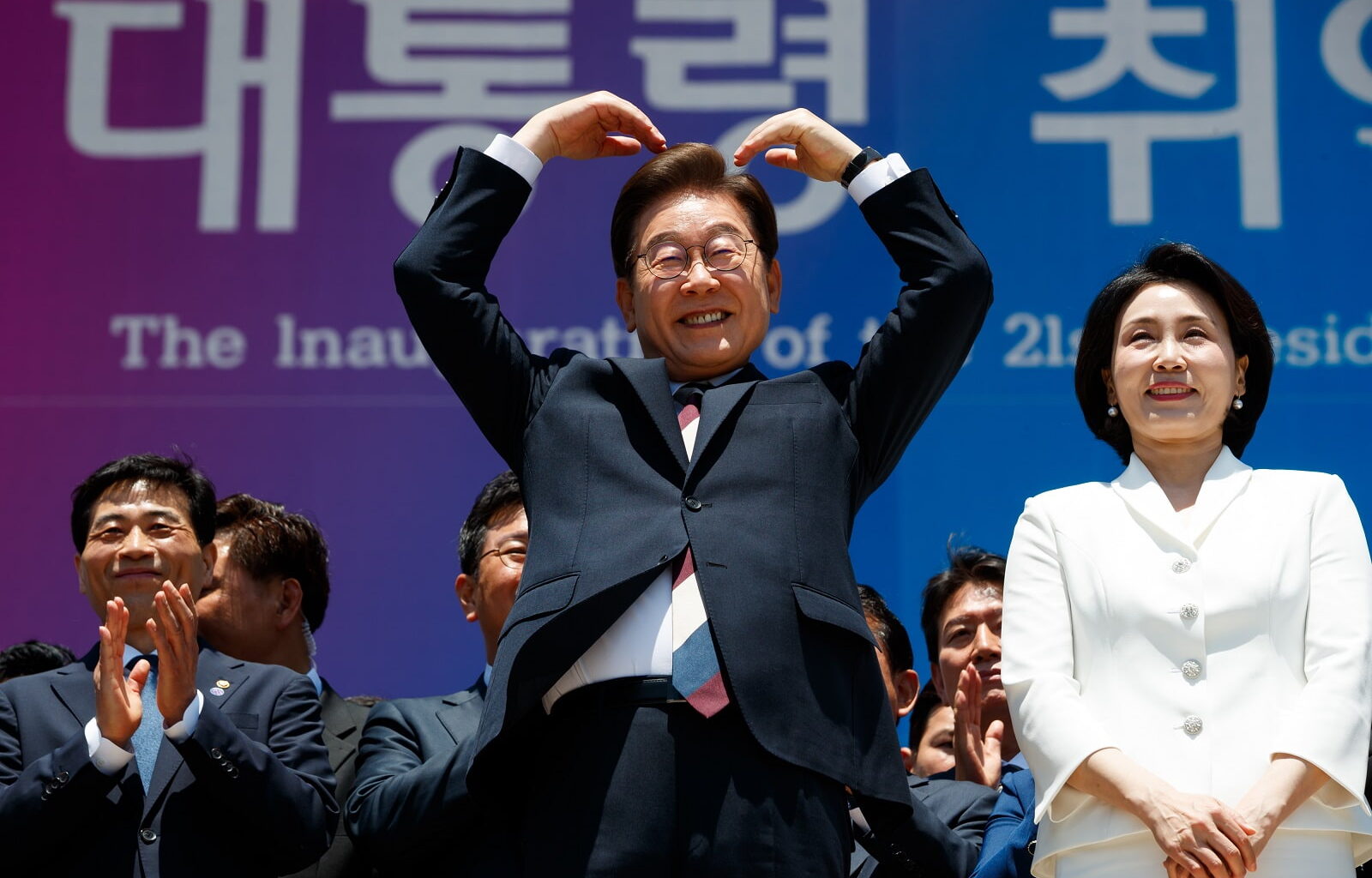South Korea’s new president Lee Jae-myung faces a unique challenge that his predecessor Moon Jae-in did not: the growing military cooperation between Russia and North Korea. With Moscow breaking international sanctions by buying arms from Pyongyang and hiring North Korean soldiers and labourers, the collaboration has become an increasing security threat to Seoul. The financial gains for Pyongyang from the endeavour, coupled with Russia’s technological assistance, have the potential to critically alter the inter-Korean military balance in the North’s favour. Still, South Korea retains an overall qualitative military advantage.
Lee’s “pragmatic” foreign policy approach comes with an ultimate goal of building lasting peace on the peninsula. His playbook revolves around improving relations with Russia and North Korea to lower tensions, which he regards as being brought about by former President Yoon Suk-yeol’s “ideological” approach to diplomacy.
Lee and Yoon have used very different methods to deal with the threat of Russia–North Korea military cooperation. Yoon vowed to increase support for Ukraine unless Russia stopped using North Korean troops. He also doubled down on the country’s ties with NATO, warning of the threat North Korea posed to Europe. Lee, conversely, is poised to use trade to improve relations with Russia and undertake unilateral actions to demonstrate South Korea’s peaceful intentions towards the North. Lee’s logic is that Pyongyang will not need to send soldiers to Russia if its survival is guaranteed. Of note, Lee did not attend the NATO summit that Yoon participated in three years in a row.
Although Yoon’s hardline method failed to stop the flow of North Korean troops to Russia, it is equally unlikely that Lee’s soft approach will work any better. Like denuclearisation incentives, North Korea reaps more rewards from sending its troops to Russia than from any South Korean inducements. North Korea makes around US$100 million per year from the South Korean-controlled Kaesong Industrial Complex, and Seoul’s humanitarian assistance peaked at US$302 million in 2007 and has declined ever since. In contrast, North Korea has made US$5.5 billion from selling war materiel to Russia since 2023, and is projected to earn US$572 million from its mercenaries annually.
With no diplomatic solution to the war in Ukraine that satisfies Moscow, the odds of North Korea ceasing troop deployments to Russia is low.
Money aside, Lee’s rapprochement initiatives also give North Korea the peace of mind to continue dispatching soldiers to Russia. Lee vowed to restore the 2018 inter-Korean military agreement and to create a joint military committee to decrease the chance of conflict along the border. This is in contrast to Yoon scrapping the agreement and his suspected move to provoke North Korea into a conflict. North Korea gains so much from the military cooperation with Russia that it was willing to send troops away from the peninsula even when it was fully aware of Yoon’s call for regime change in the North. Pyongyang may not engage with Lee’s peace initiatives, but just the fact that Lee does not provoke the north like Yoon did removes a major security concern.
However, Lee’s plan to improve ties between Russia and South Korea via trade will have only limited effects. Trade volumes between the two countries have been declining – from US$17.4 billion in 2021 to US$6.87 billion in 2024. Russia’s trade with North Korea totalled US$34 million in 2024, but this figure doesn’t consider arms sales and other barter exchanges, which at an estimated US$20 billion would far exceed any trade with Seoul. Importantly, Seoul cannot provide the personnel that Russia needs to fight Ukraine or to rebuild war-torn territories. Russia and North Korea recently began construction of the first road bridge over the Tumen river, signalling that trade volumes are on an upward trajectory.
This is not to suggest that a continuation of Yoon’s hawkish policy would have changed either Russia’s or North Korea’s calculations. Yoon linking the Euro-Atlantic and Indo-Pacific theatres through his association with NATO justifies Pyongyang’s decision to send troops to Russia, as North Korean leader Kim Jong-un linked the frozen war in Korea to the conflict in Ukraine. Yoon increasing tension with North Korea along the border might have cemented the Russia-North Korea alliance, as Moscow assured Pyongyang that it would come to the latter’s defence if attacked.
With no diplomatic solution to the war in Ukraine that satisfies Moscow, the odds of North Korea ceasing troop deployments to Russia is low. And even if there is a solution, North Korean labourers and mercenaries in Russia will continue bringing in cash for the regime. For Lee, this poses an almost unwinnable contest. Neither a hard nor a soft approach to the Russia–North Korea alliance will convince Pyongyang to withdraw troops. Just as with the denuclearisation dilemma, North Korea retains the veto over how to use its forces and to what end.
